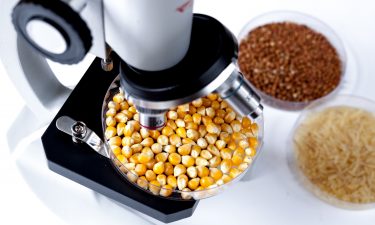Five ways to avoid a food recall
- Like
- Digg
- Del
- Tumblr
- VKontakte
- Buffer
- Love This
- Odnoklassniki
- Meneame
- Blogger
- Amazon
- Yahoo Mail
- Gmail
- AOL
- Newsvine
- HackerNews
- Evernote
- MySpace
- Mail.ru
- Viadeo
- Line
- Comments
- Yummly
- SMS
- Viber
- Telegram
- Subscribe
- Skype
- Facebook Messenger
- Kakao
- LiveJournal
- Yammer
- Edgar
- Fintel
- Mix
- Instapaper
- Copy Link
Posted: 1 December 2020 | Rob Kooijmans - Food Strategy Institute | No comments yet
Product recalls can be costly and result in a loss of consumer trust, but they are often avoidable. Rob Kooijmans outlines his five tips to avoid the dreaded food recall…


Product recalls can affect any manufacturer; risk assessment is key
Did you know that 50 percent of product recalls originate from further up the supply chain rather than as a result of the food manufacturer itself? You may have heard of the saying, “It is not a matter if, but when you will face recall”, and it’s prudent to keep this in mind during your risks assessments.
Here, I offer five crucial areas to focus on to avoid a food recall, or at very least, reduce the likelihood of a food recall for your organisation.
Be aware, understand and manage risks
The starting point in prevention is always to understand what it is you are trying to prevent. Of course, your Hazard Analysis Critical Control Point (HACCP) plan is a good starting point for this, since (ideally) all the relevant food safety risks are highlighted in your plan.
While HACCP plans are a legal obligation, it does not necessarily mean that all the risks mentioned in the plan are properly understood and even effectively managed. One of the key principles of most HACCP plans is that after listing all the risks, these are categorised by looking at aspects such as likelihood, severity (of impact) and detectability. Only for the ‘higher’ risks are preventive measures, eg, Critical Control Points (CCPs), usually put into place. Most other areas might (conveniently) be disregarded.
I am not saying that you must manage all risks, but certainly a structural review of your HACCP plan, based on external data, internal process data and (intermediate) samples, is really important. Risks that might seem negligible at one point in time might shift to risks that must be managed in more detail.
Learn from others
When it comes to recalls, you can most certainly learn from others. It is wise to regularly review recall notifications (eg, in the databases from the EU, Food and Drug Adminisatration, Canadian Food Inspection Agency and Food Standards Australia New Zealand). Recalls that occur elsewhere – and certainly the underlying causes – may offer good insight into potential areas of elevated risk within your processes.
It is wise to review information like this on a monthly basis. Alternatively, you could consider getting a membership for a database that informs you of potential issues popping up. There are several commercially available solutions which can be easily found via an Internet search.
Do not rely on COAs only
In terms of supplier management, many companies rely on a combination of supplier (GFSI) certification, supplier audits and Certificates of Analysis (CoA) being sent for each batch or shipment. While these aspects form a sound basis of any supplier quality management approach, it should be complimented by (random) tests performed by yourself.
Sometimes food safety issues arise during warehousing and transport, these will not be picked up by the finished product testing performed by your supplier. Furthermore, suppliers often use a Certificate of Conformance (CoC) – which is only an administrative notification that, according to the supplier, the product is within the given specification. No underlying measurements have been performed on the product that was delivered. All in all, you will only really know the quality of your ingredients if you perform tests yourself.

One other important aspect in relation to the use of CoAs is that most companies just evaluate these one by one and if all parameters are satisfactory, the ingredient is approved for use. While this might sound apt, a deeper analysis of the CoA data can bring a lot of value.
Best-in-class companies enter all the data of the CoA into a database. This allows them to perform trend analysis on the data. If, for example, you see an upward trend in the total plate count of a certain ingredient over time, this might give rise to additional checks or even a supplier audit. This way emerging risks can be detected at an early stage and managed before they evolve into a recall situation.
Focus on critical steps in your process
By nature of your food safety management approach, a lot of emphasis is placed on the proper execution of your CCPs. But are you sure your CCPs are always executed with the right discipline? Furthermore, do operators take the proper corrective action if a CCP is violated?
Many recalls have been caused by the incomplete execution of CCPs or corrective actions. For that reason, daily attention should be given by production management, as well as quality analysis, to all the CCPs in an organisation. Whenever possible, automation of CCPs or automatic logging of the execution of a CCP can help in ensuring 100 percent adherence to the defined standards.
Sufficient attention to the Good Manufacturing Practices (or the Prerequisite Program) is also essential. Failure to sustain a safe environment and safe conditions for food manufacturing will eventually result in contaminated products and related recalls.
Finished product testing
Apart from ultra-fresh food products, finished product testing can be that one thing that prevents a recall. Of course, it is important to manage risks at the place where these occur; at your suppliers, during processing and so on. But a recall is very costly – hence why having a thorough finished product inspection plan is still an essential step in preventing a recall situation.
Just relying on the systems that are in place is a risky approach, so it is best to have a safety net in the form of a finished product testing plan.
Ideally, the finished product inspection plan should not only focus on the legally mandatory tests, but also factor in the wider supply chain and production related risks. It is a good idea to create an adaptive inspection plan, which steps up in frequency if issues are detected. It goes without saying that legally required tests must be executed at least at the minimum required frequency.
About the author
Rob Kooijmans is co-founder and CEO of the Food Strategy Institute. He is the also the co-founder of FoodRecall.nl and Food Safety Experts.
Related topics
Contaminants, Data & Automation, Food Fraud, Food Safety, Hygiene, Outbreaks & product recalls, Quality analysis & quality control (QA/QC), recalls, Regulation & Legislation, Supply chain
Related organisations
Canadian Food Inspection Agency (CFIA), European Union, Food and Drug Administration (FDA), Food Safety Experts, Food Standards Australia New Zealand (FSANZ), Food Strategy Institute, FoodRecall.nl









